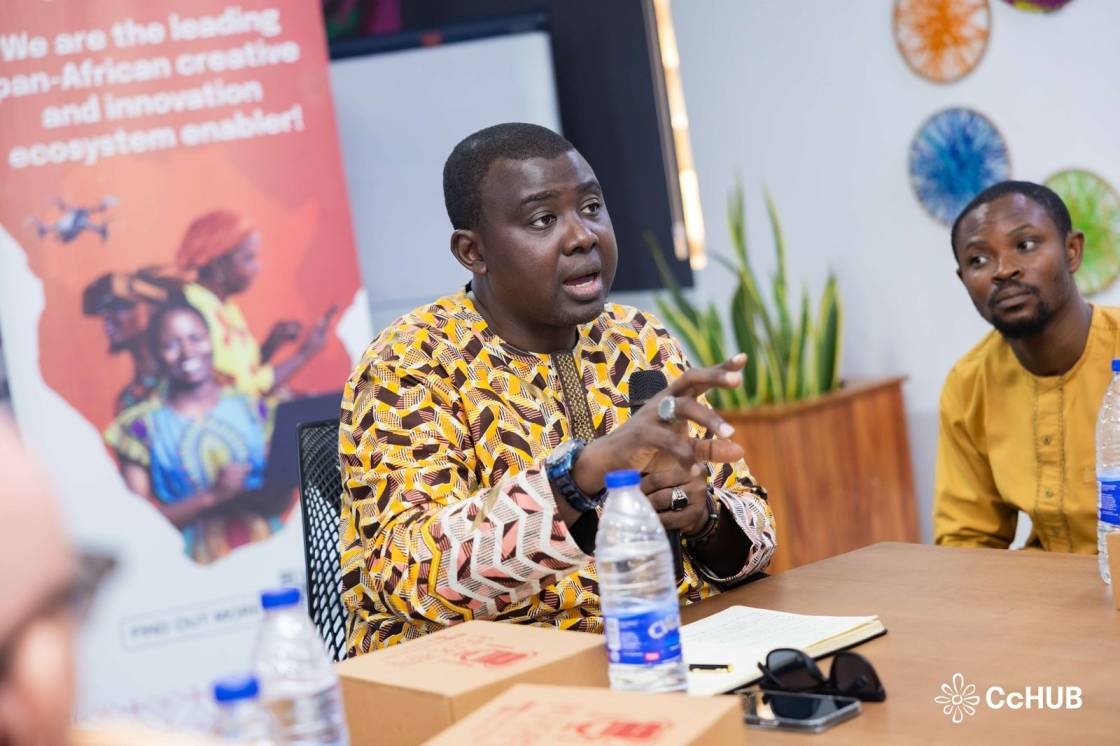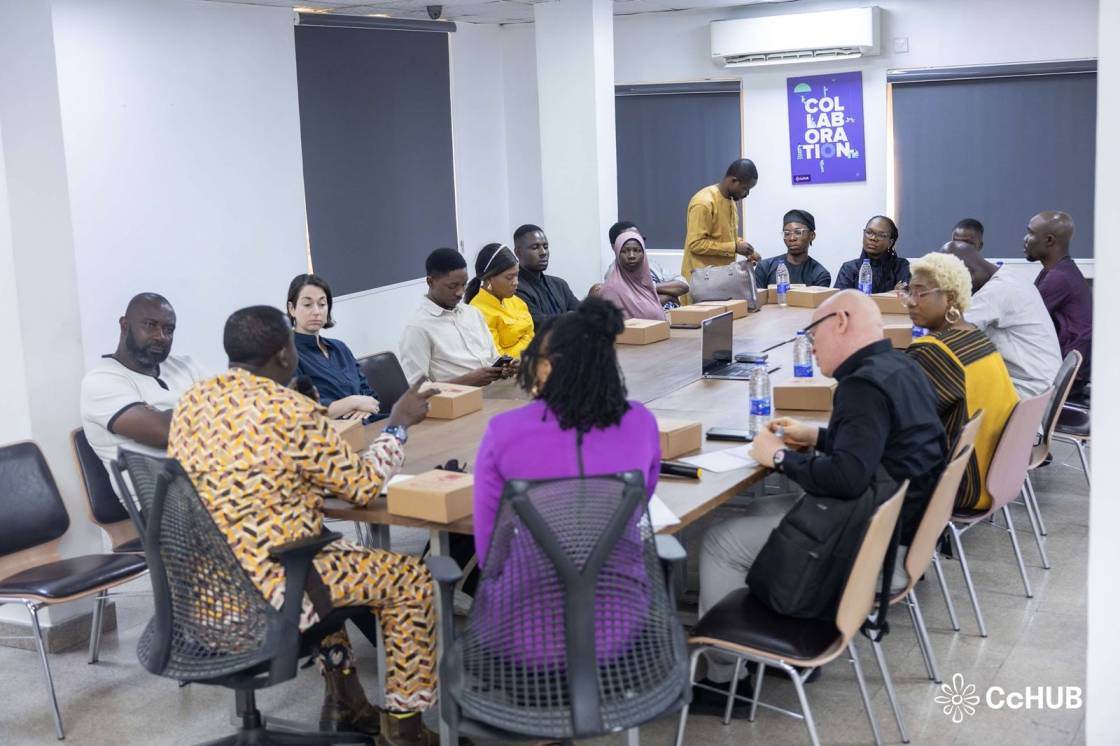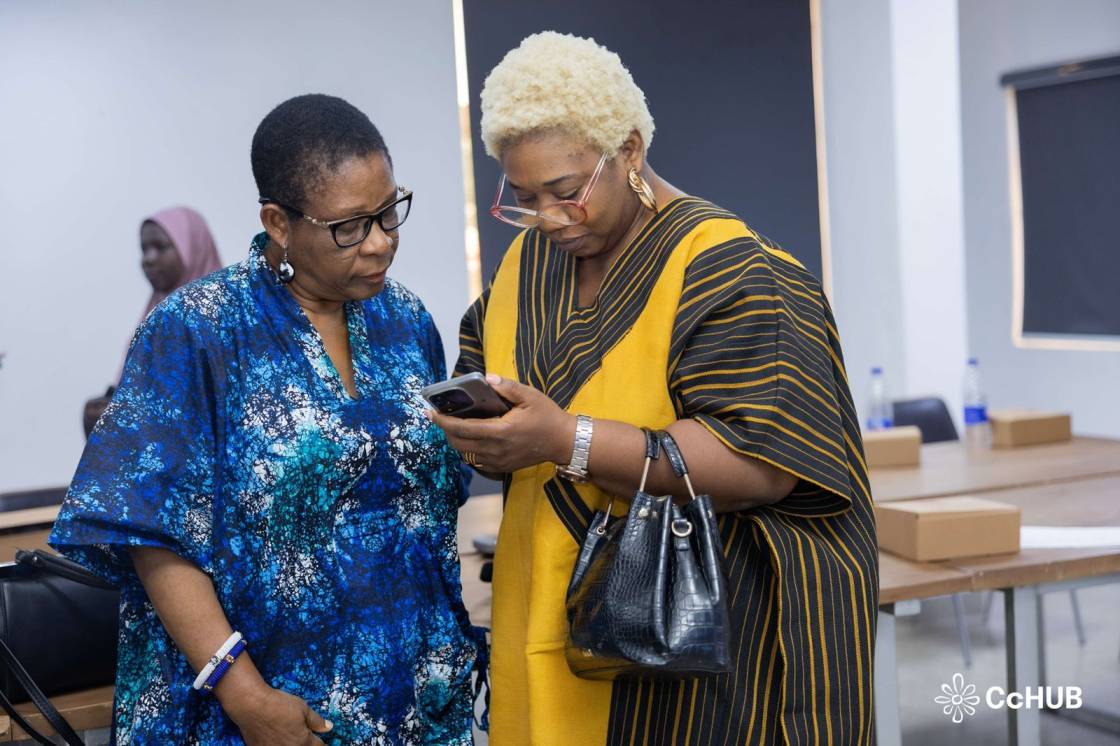In a recent breakfast chat hosted by Co-creation HUB (CcHUB) Limited on “Democracy in the Digital Age: Collaborative Ways for Civic Resilience,” keynote speaker Gbenga Sesan, Executive Director of Paradigm Initiative (PIN), delivered a stark message: the primary threat to democratic integrity in Nigeria is not the advent of artificial intelligence, but the accelerated erosion of trust.
Gbenga stated that technology merely enhances flaws that have always existed in the system, forcing stakeholders to confront foundational weaknesses ahead of the 2027 general elections in Nigeria.
Technology: An Amplifier of Pre-existing Flaws
Gbenga firmly stated that the core problem is not the technology or the platform itself, but the human element. He demonstrated this by drawing historical parallels, noting that advanced manipulation today is simply an evolution of old scams, citing the “419” fraud and the early social media deception involving the “Royal Amebo” catfish account. These examples prove that technology is a neutral tool; its capacity is either to “enhance or destroy,” depending on the intent of the user. Consequently, the real problem lies with the people behind the tech, making the resulting loss of confidence the most significant national vulnerability.

“Our biggest threat right now is trust,” Sesan asserted, emphasizing that this lack of confidence extends beyond the reliability of digital sources to encompass trust about the people and institutions themselves. In a low-trust environment, citizens receive and accept manipulated information as valid, complicating the fight against disinformation. To deal with this crisis, two solutions are paramount: first, having the difficult conversations to address the issue head-on without resorting to extreme views; and second, the crucial task of equipping citizens with enough knowledge to tell the difference between what is real and what is fake.
The Double-Edged Threat of Digital Misuse
The threat posed by technology is concrete and multifaceted. The most visible manifestation is the danger of deepfakes, where manipulated videos travel widely. However, more insidious threats are emerging from the deliberate exploitation of compromised data. Gbenga revealed that the digital identities of Nigerians are effectively “for sale” on the dark web. Massive data breaches from government databases (including NIN and voter registries) provide threat actors with names, addresses, phone numbers, and even biometric information of millions, enabling mass fraud and high-level impersonation of public officials and security personnel.
Furthermore, political actors are using AI to manipulate electoral outcomes. By feeding validated election data into AI agents, groups can map out strategies to suppress voter turnout in areas of weakness and simultaneously manipulate conversations to drive propaganda. The deployment of bots for strategic information manipulation is undermining the possibility of a shared, general truth, pushing the democratic space into a dangerous “post-truth” environment.
Structural Failures in Democracy
Beyond the technological threats, Gbenga identified two fundamental infrastructural gaps that must be addressed to achieve civic resilience. The first is a profound disconnect between the process and the outcome of Nigerian elections. Despite technological advancements like BVAS (Bimodal Voter Accreditation System), the speaker argued that the process itself has become easily manipulable, resulting in outcomes that frequently defy the actual vote count. This issue, he stressed, is an infrastructural problem that cannot be fixed by individuals; it requires the strengthening of institutions.

This leads to the second gap: a pervasive culture of big men and big women and weak institutions. Gbenga lamented that institutions are often intentionally undermined, such as through legislation granting political office holders unilateral power to override regulatory boards. This structural weakness, coupled with the legacy of electoral manipulation, contributes directly to voter apathy, as citizens believe their efforts—from registration to voting—will ultimately be invalidated by political sabotage.
A Tech-Driven Path to Resilience
To counteract these deep-seated problems, the speaker offered solutions aligned with the RSVP (Register, Select, Vote, Protect) framework. Regarding registration, Gbenga argued that INEC is essentially wasting money on redundant drives when the technology already exists. He strongly recommended that INEC leverage validated national databases, such as the NIN (National Identity Number), to streamline and complete biometric verification online, eliminating the need for inefficient physical attendance for continuous voter registration.
For the voting process, Gbenga affirmed that the technology of BVAS does not have a problem but rather faces deliberate sabotage, requiring focus on process integrity. Ultimately, the entire strategy for resilience must center on equipping citizens with knowledge and redirecting focus toward the weakest in society—those most vulnerable to disinformation and exclusion—to ensure that technological and educational interventions achieve maximum impact and begin to renew trust in Nigeria’s democratic future.

Also in attendance during the breakfast chat on Democracy in the Digital Age: Collaborative Ways for Civic Resilience were activists, civil society organizations (CSO), Eweka Yvonne O, the Senior Programme Manager, Election and Governance, and media professionals such as Kayode Okikiolu, also known as ‘Gentleman Of The Press,’ a media innovator and TV anchor with Africa’s news leader, Channels Television.

